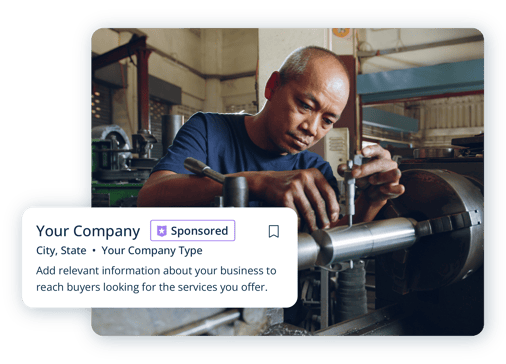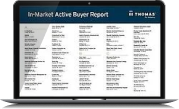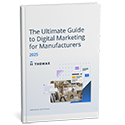
Industrial Icons: Valmont Coatings Reaches a Range of Marketing Segments With the Help of Thomas
Thomas has been connecting industrial buyers and suppliers for more than 125 years. The Industrial Icons blog series celebrates the longtime customers who have grown their businesses with Thomas and the marketing and advertising solutions that have evolved along with them over the years.
Read More »![Optimize Your Website for AI Search [Image: hands typing on a laptop]](https://blog.thomasnet.com/hs-fs/hubfs/shutterstock_2661253095.jpg?width=400&name=shutterstock_2661253095.jpg)
How to Optimize Your Website for AI Search
For as long as people have been turning to internet search engines for answers to their questions, search engine optimization (SEO) has been an important part of any business’ marketing strategy. For industrial suppliers, having strong SEO can help connect you with buyers who are looking for the products and services your company offers. SEO remains a crucial component of the marketing playbook, but the increasing use of AI platforms for search and discovery is transforming the landscape.
Read More »
Industrial Icons: Wilke Enginuity’s Partnership With Thomas Spans Decades and Generations
Thomas has been connecting industrial buyers and suppliers for more than 125 years. The Industrial Icons blog series celebrates the longtime customers who have grown their businesses with Thomas and the marketing and advertising solutions that have evolved along with them over the years.
Read More »
Thomas Is the Search Engine Made for Industry
If you’re an industrial procurement professional, you might be familiar with the following scenario: You conduct an internet search for what you need, only to be met with results that aren’t relevant to industrial buyers. While general search engines like Google provide a broad range of options, they often lack the precision required for specialized industrial needs.
Read More »
Maximize ROI with Performance-Based Listings
If you’ve ever managed a digital advertising budget, you know the challenge of proving return on investment. Traditional advertising often relies on impressions—the number of times your ad is shown—which doesn't always translate to genuine customer interest or engagement. That's why Thomas is reshaping the advertising landscape with Performance-Based Listings, a pay-per-click advertising model.


From Cold Calls to Qualified Leads: Using PPC Data to Fuel Sales Success
For industrial suppliers, the pursuit of qualified leads can be challenging and time-consuming. Many sales teams still lean heavily on cold calls — a tedious, low-conversion strategy that often results in wasted effort and flat-out rejection. But what if you could replace those fruitless hours of phone calls and emails with a stream of "warmed up" leads, complete with data on their interests and needs?
This is where pay-per-click (PPC) advertising and the actionable data it provides can change the game. By adopting a performance-based approach, you can stop paying for simple visibility and instead pay for genuine interest, ensuring your sales team only engages with prospects who have already demonstrated a clear need for your products or services.

3 Tips to Stay Ahead of Tariffs for Holiday Procurement Planning This Year
With global tariffs continuing to shift, it’s smart to get a head start on end-of-year planning and know what your options are when it comes to sourcing and shipping. Here are three tips for making sure this holiday season runs smoothly.
Read More »
A Guide to Thomas Industry Update (TIU)
For industrial marketers, reaching the right audience with the right message is a constant challenge. You need a channel that not only cuts through the noise but also positions your brand as a trusted authority. Thomas Industry Update (TIU) is a daily newsletter designed to do just that, delivering manufacturing news, data, and best practices directly to the inboxes of key industry buyers.
This guide provides a comprehensive overview of Thomas Industry Update, detailing what it is, who it reaches, and how you can leverage it to achieve your marketing goals. We will explore its value to advertisers and the various advertising formats available to help you connect with a dedicated and engaged audience of manufacturing leaders.
Read More »
Industrial Icons: IMC Highlights the Value of Its Services with a Thomas Marketing Program
Thomas has been connecting industrial buyers and suppliers for more than 125 years. The Industrial Icons blog series celebrates the longtime customers who have grown their businesses with Thomas and the marketing and advertising solutions that have evolved along with them over the years.
Read More »




